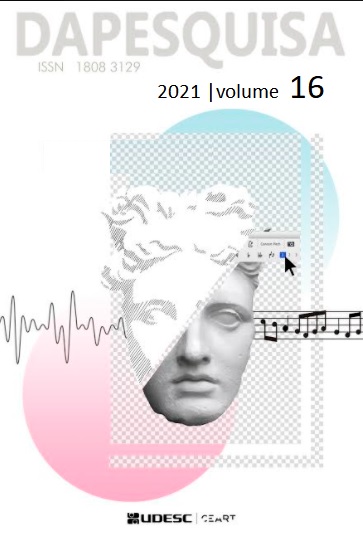O Valor do Produto de Moda por Agentes Artificiais
DOI:
https://doi.org/10.5965/18083129152021e0030Palabras clave:
Moda., Inteligência artificial, Aprendizado do computador, Vestuário, SemióticaResumen
O avanço das tecnologias tem possibilitado grandes evoluções em relação ao desenvolvimento de máquinas inteligentes. Para tanto, sua programação e lógica pode ser entendida por meio dos processos semióticos que acontecem nos seres humanos. Através de interpretações de signos, as máquinas organizam informações e tomam decisões, possuindo a capacidade de aprender. Na moda, os sistemas de escolhas são complexos, pois envolvem tanto fatores materiais como intangíveis. Esse sistema de valor se estabelece em qualquer momento da cadeia produtiva e dependem especificamente dos pesos que os usuários dão para cada fator que pode variar de acordo com seu estilo de vida, cultura ou crenças. O objetivo deste artigo foi realizar uma análise crítica e reflexiva em que se discute o valor do produto de moda na vida dos usuários a ponto de se tornarem passíveis de serem escolhidos por um agente externo e artificial. Acredita-se que considerando todos os níveis de circunstâncias, condições e fatores de uso a quantidade de variáveis na tomada de decisão tende ao infinito, fazendo assim com que, até o momento, seja improvável que os agentes artificiais possam gerar valor para o produto de moda da mesma forma como os seres humanos.
Descargas
Citas
BONSIEPE, G. DESIGN: do material ao digital. Florianópolis: FIESC/IEL, 1997.
CIETTA, E. A Economia da moda. São Paulo: Estação das Letras e Cores, 2019.
FACELI, K. et al. Inteligência Artificial: uma abordagem de aprendizado de máquina. Rio de Janeiro: LTC, 2011.
FREITAS, J. C. de. O design como interface de comunicação e uso em linguagens hipermidiáticas. In: LEÃO, L. (org.). O chip e o caleidoscópio: reflexões sobre as novas mídias. São Paulo: Senac, 2005. p. 183-196.
GOMIDE, R. R.; GUDWIN, F. A. C. Sistemas Inteligentes Semióticos segundo a Semiótica Behaviorista de Charles Morris. Campinas: UNICAMP, 1996.
MORRIS, C. Fundamentos da Teoria dos Signos. Covilhã : Universidade da Beira Interior, 1994.
NORMAN, D. O Design do Futuro. Rio de Janeiro: Rocco, 2010.
NÖTH, W. Máquinas semióticas. Galáxia, São Paulo, n.1, 2001. Disponível em: https://revistas.pucsp.br/index.php/galaxia/article/view/1057. Acesso em: 05 dez. 2019.
RECH, S. R.; SOUZA, R. K. R. de. Ecoluxo e sustentabilidade: um novo comportamento do consumidor. DAPesquisa, Florianopolis, v. 4, n. 6, p. 602-608, 2018. Disponível em: https://revistas.udesc.br/index.php/dapesquisa/article/view/14232. Acesso em: 05 dez. 2019
SOUSA, R. P. L. de. Mídia do conhecimento: ideias sobre mediação e autonomia. Florianópolis : SIGMO/UFSC, 2019.
VIANNA, M. et al. Inteligência Artificial: como ela está transformando os modelos de negócios. Rio de Janeiro: MJV Press, 2019.
Publicado
Cómo citar
Número
Sección
Licencia
Derechos de autor 2021 Gabriela Kuhnen, Richard Perassi Luiz de Sousa, Gilson Braviano

Esta obra está bajo una licencia internacional Creative Commons Atribución 4.0.
Los autores que publican en esta revista concuerdan con los siguientes términos:
Los autores mantienen los derechos de autor y conceden a la revista el derecho de primera publicación, con el trabajo simultáneamente licenciado bajo la Licencia Creative Commons Atribución No Comercial que permite el compartir el trabajo con reconocimiento de la autoría y publicación inicial en esta revista.
Esta revista, siguiendo las recomendaciones del movimiento de Acceso Abierto, proporciona acceso público a todo su contenido, siguiendo el principio de que hacer libre el acceso a investigaciones genera un mayor intercambio global de conocimiento.
Plagio, en todas sus formas, constituye un comportamiento antiético de publicación y es inaceptable. La Revista DAPesquisa se reserva el derecho de usar software u otros métodos de detección de plagio para analizar los trabajos sometidos.





